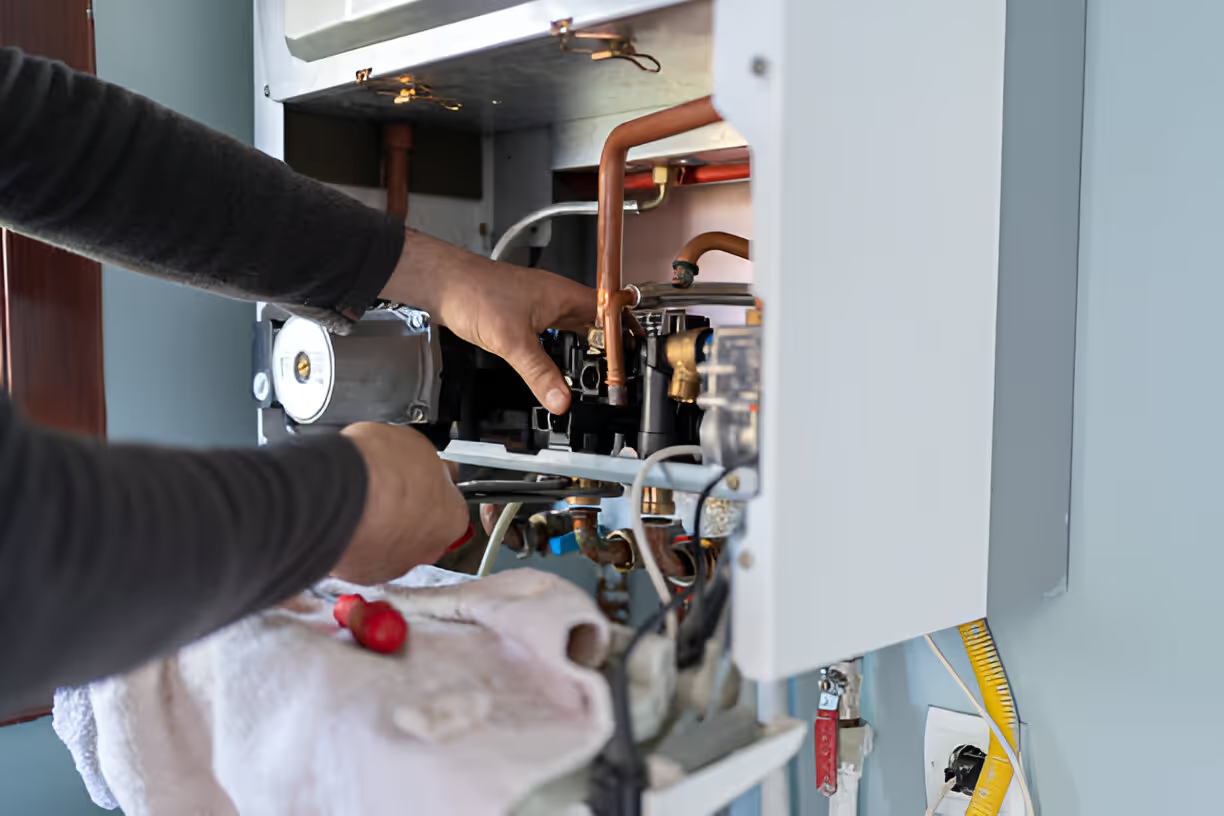Heating Replacement in Winslow Township, NJ
Heating Replacement in Winslow Township, NJ
Replacing a home heating system in Winslow Township, NJ is a major decision that affects comfort, safety, and long-term energy bills. Winters in South Jersey bring chilly temperatures and periodic freezes, and many local homes—older colonials, split-levels, and ranches—rely on natural gas, propane, or oil systems that may be nearing the end of useful life.

When to Replace vs Repair: Practical Evaluation Criteria
Deciding whether to repair or replace hinges on several objective factors:
- Age of the system: Furnaces and boilers older than 15 to 20 years typically lose a lot of efficiency and reliability. Heat pumps older than 10–12 years are often due for replacement.
- Repair frequency and cost: If you are scheduling multiple repairs each season or facing a single repair that costs a significant percentage of a replacement, replacement is usually the smarter long-term choice.
- Energy use and performance: Rising heating bills, uneven heat, short cycling, or difficulty maintaining set temperatures indicate reduced efficiency or undersizing.
- Safety concerns: Repeated ignition failures, persistent carbon monoxide traces, or corrosion on combustion components are strong signals to replace rather than patch.
- Ductwork and distribution condition: If ducts are leaky or undersized, a new high-efficiency unit may not deliver expected gains without duct repair or redesign.
A licensed HVAC technician will perform a load calculation (Manual J) to size the right system for your Winslow Township home, taking into account local climate, insulation levels, and window performance.
Common Heating Replacement Types in Winslow Township
- High-efficiency gas furnaces (modulating or two-stage burners)
- Condensing boilers for hydronic systems
- Air-source heat pumps and cold-climate heat pumps
- Dual-fuel systems combining a heat pump with a gas furnace
- Replacement of oil-fired equipment or conversion to natural gas where available
- Ductless mini-splits for additions or homes without existing ducts
Removal and Disposal: Safe, Code-Compliant Procedures
Proper removal minimizes disruption and ensures compliance with New Jersey regulations:
- Safe shutdown and disconnection of fuel and electrical supplies
- Refrigerant recovery and recycling for heat pump systems per EPA rules
- Separation and disposal of metal, plastics, and electronic components at licensed facilities
- Handling of oil tanks or contaminated materials following local environmental requirements
- Filing any required municipal permits and scheduling inspections for gas hook-ups or structural changes
Technicians should provide documentation of disposal and handle all permits and inspections required by Winslow Township or Camden County.
Energy-Efficient Upgrade Options
Upgrading during replacement can deliver meaningful savings and improved comfort:
- High-efficiency condensing furnaces and boilers: These recover heat from exhaust gases for better AFUE ratings.
- Modulating burners and variable-speed blowers: Provide more consistent temperatures and lower cycling losses.
- Cold-climate heat pumps: Deliver efficient heat through most South Jersey winters and improve cooling in summer.
- Smart thermostats and zoning: Reduce wasted heating in unused rooms and improve control.
- Duct sealing and insulation: Essential to realize efficiency gains — leaky ducts can waste a large share of delivered heat.
- Whole-home humidity control and air filtration: Improve perceived comfort and indoor air quality in humid coastal-adjacent climates.
Rebates and 0% Financing Options
Winslow Township homeowners may be eligible for multiple incentives:
- State and utility rebate programs that require specific efficiency thresholds
- Low-interest or 0% financing offers for qualifying energy-efficient replacements
- Tax incentives or manufacturer promotions tied to ENERGY STAR certified equipment
Eligibility typically depends on equipment efficiency, proper sizing and installation, and documentation. Local utility programs, including rebates for South Jersey Gas customers, often require pre-approval or post-installation verification. Verify program requirements before completing the project to ensure you qualify.
Timeline and Installation Process
Typical replacement projects follow these steps and timeframes:
- On-site evaluation and load calculation: Assess existing system, ducts, and home envelope; recommend options.
- Proposal and selection: Choose equipment, controls, and any necessary ductwork or electrical/gas upgrades.
- Permitting and ordering: Secure local permits and order equipment; lead times vary by model and season.
- Installation: Most furnace or boiler replacements take one to two days for a straightforward swap. More complex projects — heat pumps, ductwork upgrades, or conversions from oil to gas — can take several days to a week.
- Testing and inspection: System startup, combustion and safety testing, and municipal inspections as required.
- Commissioning: Final adjustments, thermostat programming, and homeowner orientation.
Plan replacement ahead of peak heating season when possible to reduce scheduling delays and avoid emergency situations in cold weather.
Expected Efficiency and Comfort Improvements
Replacing an old heating system yields several tangible benefits:
- More consistent temperatures and fewer cold spots
- Quieter operation and smoother startup
- Improved indoor air quality with integrated filtration and humidity control
- Reduced energy consumption and more predictable monthly bills
- Enhanced safety from modern combustion controls and sealed combustion options
New high-efficiency systems can markedly reduce fuel consumption compared to equipment installed decades ago. Performance improvements are most evident when the system is properly sized and paired with sealed, insulated ductwork.
Warranty, Service, and Maintenance Recommendations
Protect your investment with these best practices:
- Choose equipment with a strong manufacturer warranty and ask about extended warranties on key components.
- Confirm that labor warranties cover installation workmanship for a defined period.
- Enroll in an annual maintenance plan: at minimum, schedule a yearly tune-up to check combustion, heat exchanger condition, controls, and airflow.
- Replace filters regularly and keep vents and returns unobstructed.
- Have combustion appliances and carbon monoxide detectors tested annually in homes with fossil fuel heating.
Regular maintenance preserves efficiency, extends equipment life, and keeps warranties valid.
Customer Testimonials
Our customers consistently praise our exceptional service and quality products, highlighting their satisfaction and loyalty.


